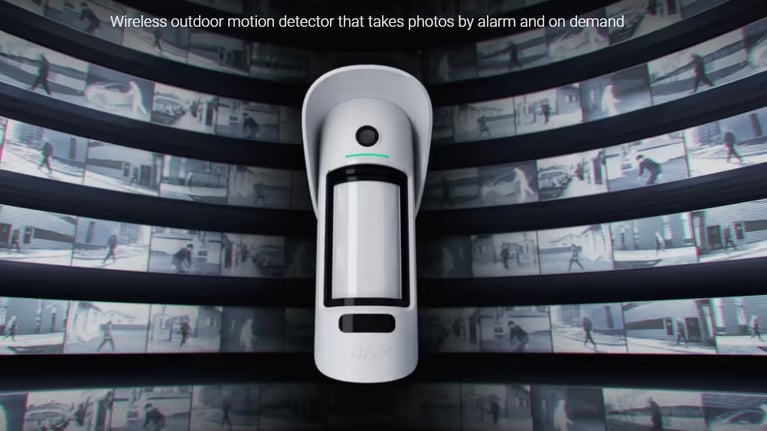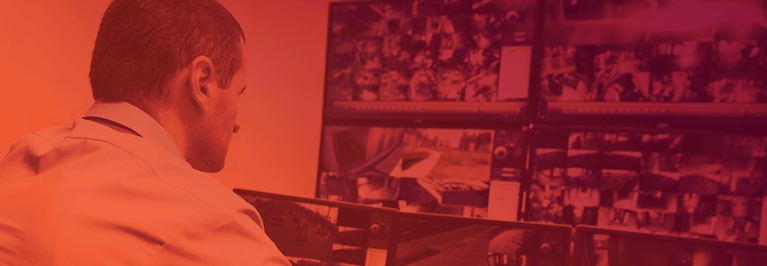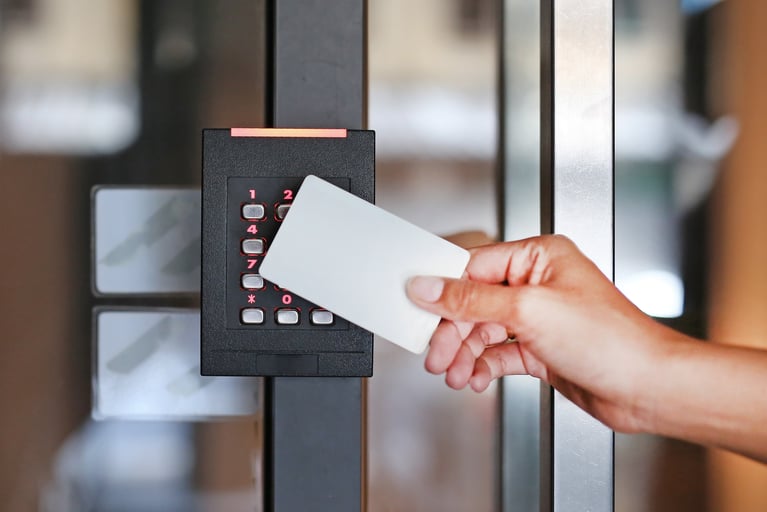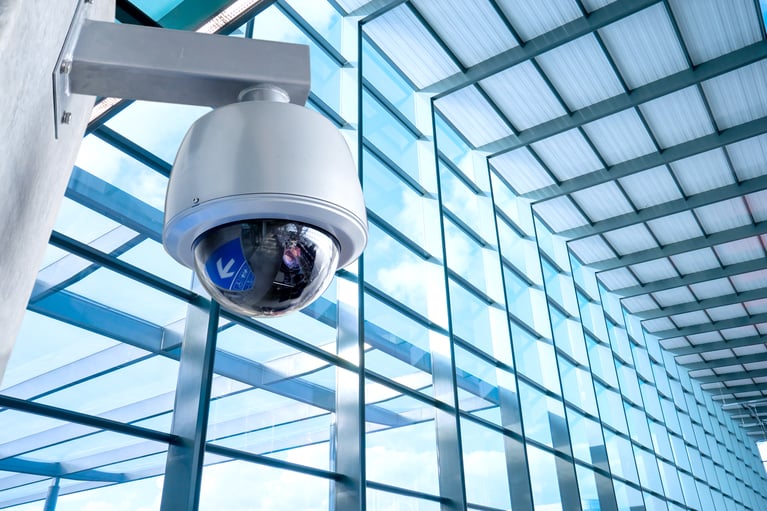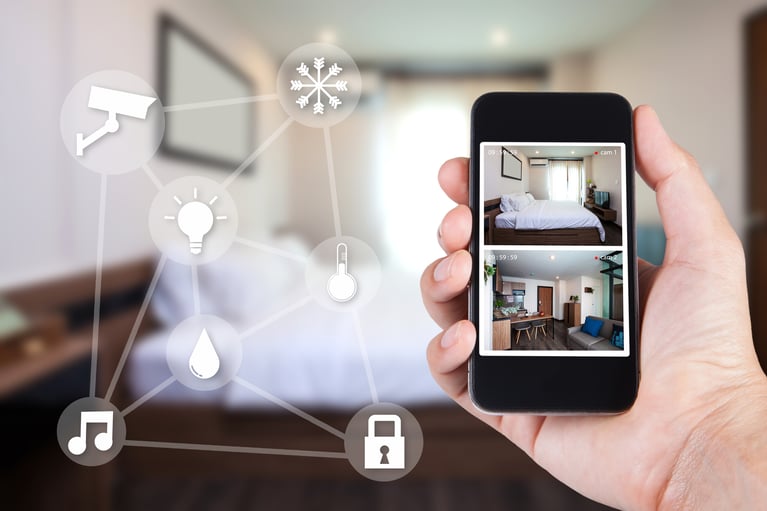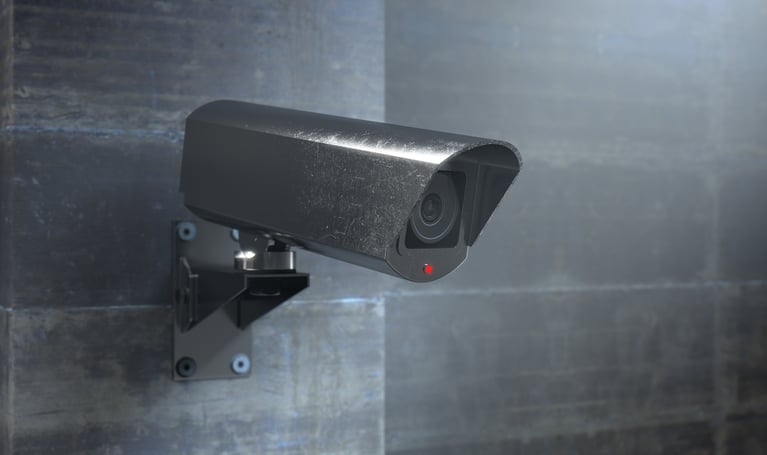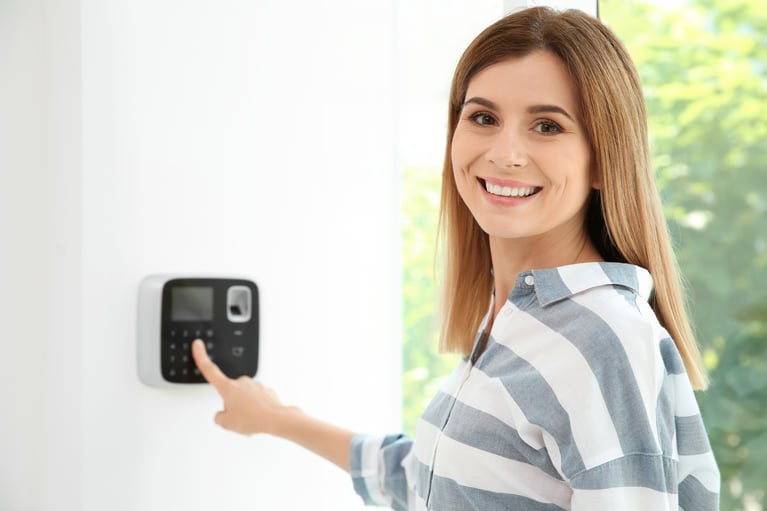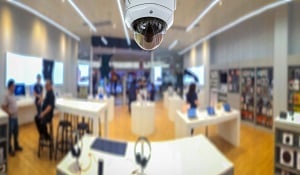
Australia's Queensland city Townsville reached an alarming position of one of the world's hot spots for crime with 3,005 unlawful entry offenses and 2,232 property damage incidents in 2019. According to Numbeo, the world's largest user-contributed database, Townsville is ranked 60th in the world for crime keeping company with notoriously crime-riddled cities like Bagdad and Tijuana.
Unfortunately, Townsville is not alone in its battle against increasing crime rates with businesses all over Australia saying enough is enough. Honest citizens are fighting back with CCTV for businesses and public areas one of the most effective weapons available.
Are you a business owner looking to up your security with state of the art surveillance? Want to compare systems before pulling the trigger? If so you have come to the right cyberspace. Keep reading to learn everything you need to know and then some about the advancing world of closed-circuit television security systems.
Complete Guide to CCTV for Businesses
Your business is your livelihood and worth protecting. A business without security is asking for trouble, but you already know that.
What you may not know is just how much CCTV has to offer. What does the investment involve? Exactly what does your business need for the best CCTV security money can buy?
In this comprehensive guide, we seek to educate business owners like you about the options available, how they work, and get into the details of what CCTV is all about. We will start with the basics and end with you feeling like a seasoned surveillance expert.
CCTV 101
CCTV is an acronym for Closed Circuit Television. Closed-circuit means that the video is private and contained within a closed loop and not broadcast over the airways like traditional television. CCTV has been around for about 80 years. CCTV systems are used primarily for surveillance and as evidence for apprehending and prosecuting those accused of crimes.
Quick History Lesson
The first known usage of CCTV was on the German side of WW2. The system designed by engineer Walter Brunch was used to monitor the launching of V-2 rockets from a safe distance. It wasn't until 1949 that an American government contractor named Vericon began marketing the technology for the private sector.
Incidentally, CCTV isn't the only technology created for war. The technology ARPNET that later became the modern-day internet was originally created to strengthen communication channels in case an enemy targeted radio and telephone communication sites. CCTV was also used by America to observe up close nuclear bomb testing which would obviously not be possible otherwise.
The first CCTV systems were extremely crude with two basic components, a camera wired to a television. These systems were unreliable and easily disabled with a cutting of the wire. The first CCTV systems were only capable of live monitoring of areas close to the monitoring station.
Along Came VCRs
The greatest leap in the technology of CCTV came with the introduction of VCR recording integration in the 1970s. With the ability to record the video stream, CCTV could be used without constant monitoring and the tapes referred to when needed. However, this was far from a perfect system.
The VCR tapes only recorded 4-6 hours and so would need changed out regularly or rewound and recorded over. If the recordings needed kept for any significant time period they were cataloged in costly libraries of tapes often taking up entire rooms. CCTV technology has come a long way since the early days, but the fundamental concept remains the same - monitor and record to keep an eye out for trouble.
Multiplexing Introduced
The next major development made large scale surveillance with multiple cameras less cumbersome. In the 1990s, multiplexing solutions made it possible to monitor and record multiple camera signals on one screen.
For example, if the security of a building required 4 cameras it was no longer necessary to have four separate monitors and all four signals combined and displayed on to one screen. This greatly reduced the cost of the system and the hassle and cost of keeping multiple recordings and tapes. Multiplexing greatly increased the popularity of CCTV for businesses.
The Digital Data Revolution
The information age truly began with greater capabilities in data storage that came with Digital Video Recorders (DVR). At the turn of the century, VCR technology was slowly replaced with CCTV hooked up to computers and the data stored on hard drive(s). Suddenly there was no limit to the amount of data that could be easily and cheaply stored.
The implications of "big data" are still not completely understood but there is no question that it will be a major factor in the advancements in fields such as Artificial Intelligence (AI) and The Internet of Things (IoT). A recently released IDC report, Data Age 2025, sponsored by data storage giant Seagate™, explains the digitalization of our world in detail.
With the incredible rate of growth in data collection points, the global data sphere will measure an incredible 175 zettabytes by 2025. To give you some context to how large this data collection is, in 2003, the American linguist Mark Liberman calculated that the entire speech spoken by humanity could be stored with 16-bit audio in 42 zettabytes.
Fast Forward to Present Day
CCTV systems today are extremely powerful security tools. Most modern-day CCTV systems utilize Network Video Recording (NVR) technology. CCTV using an NVR record data digitally without the need for on-site video recording hardware. The system has a dedicated IP address allowing viewing and recording of the footage remotely from anywhere with an internet connection including a smartphone.
Advanced IP security systems are a more expensive option. But they offer the best in security, data storage, and remote capabilities available.
These systems are particularly helpful for monitoring businesses with multiple locations. The camera streams data online making it possible to monitor any number of locations easily from anywhere.
Another recent notable improvement in CCTV security is cloud-based VMS solutions. Storing and recording video and audio data to the cloud reduces installation costs by eliminating the need for onsite data storage equipment. Data is encrypted and stored securely in the cloud making deleting incriminating CCTV footage extremely difficult for offenders.
Types of Video Surveillance Equipment
There are thousands of products and configurations of equipment available in today's market. In this section, we will describe the types of CCTV used and the basics of how they work. We will also look at the options that are available for different CCTV equipment.
CCTV System Configurations
There are three main parts of a CCTV security system - capture, store, and view. The video/audio device used to capture the data namely the security camera(s) is the first piece of the puzzle. We will cover the different types of security cameras in a moment.
The camera then encodes and sends the data to your recording device either by a hardline or wirelessly. If your cameras use wireless transmission of data, a wireless receiver is of course needed.
The final stage of the process is accessing and viewing the data. This could be an onsite monitor or an offsite device accessing the data from an online storage solution. Although the process is rather simple in its functionality there are many factors to consider when selecting each component of your system.
Cameras
Arguably the most important piece of equipment is your camera or cameras. The capability of your camera directly affects the quality and amount of surveillance your system is capable of. Consider the following factors when deciding what you will need your camera to view and record:
- The distance the camera can see and zoom (focal length)
- Field of vision (60°, 180° wide-angle vision, 360° full angle vision)
- Fixed, automatic tracking, remotely controlled capabilities
- Image filtering and processing capabilities (low light capturing, infrared, thermal imaging, etc.)
- Wired or wireless
- Displayed camera or hidden
- Connected control of the lighting of the area
- Resolution of video recording
CCTV cameras have a wide price range. A simple wired camera with limited capabilities can cost less than a hundred dollars. A sophisticated professional-grade security cameras cost thousands of dollars. When in doubt ask a security expert on how to choose the best CCTV camera for your needs.
Video Recorders
In some cases, you may not want or need to record video/sound and only use your camera for live monitoring. An example of this could be the camera used in an entrance video intercom system. For most business applications you want to be able to view CCTV footage after the fact. This means you need a video recorder.
The majority of CTTV systems record the video feed with a DVR recorder onsight. The video input is either wired to the DVR directly or through a wireless receiver. DVR recorders normally transcode the data and back it up online as well as a local computer hard drive.
IP cameras send footage directly over the internet and the data recorded and stored on the network. These cameras are largely stand-alone systems. They do not require an onsite monitoring station or separate hardware for recording or storing the data.
IP cameras are the easiest to set up and install. They are ideal for business owners who spend a lot of time away from the business. The camera is conveniently monitored from any connected device including PCs, laptops, tablets, and smartphones.
Monitors
Depending on the number of cameras and the level of live monitoring your business needs, you may want one or more monitors set up on site. Large businesses often have an entire room dedicated to monitoring the buildings' CCTV cameras.
Monitoring CCTV becomes increasingly more difficult the more cameras the system has. You, your employees, or your security guards are only able to take immediate action if they see something of concern on the live feed. One monitor showing 4-6 camera views is sometimes easier to keep an eye on than separate monitors.
We might suggest keeping the cameras covering high traffic and high-risk center to your monitoring efforts. Systems with dozens of cameras often are sometimes outfitted with triggers and alarms to help with alerting security when something of interest comes along.
What CCTV Can Do for Your Business
CCTV for your business is not a small investment and shouldn't be taken lightly. Maybe you are struggling with weighing the advantages and wonder if putting up the cash for a video security system is worth the money or hassle? The answer is not a definite yes.
Many business owners decide against having CCTV and that decision may very well work out fine for them. Installing cameras in your business may or may not be right for your business.
In this section of the guide, we explain some of the advantages and benefits to your business that CCTV has to offer. In the end, only you know best if purchasing or upgrading your security with CCTV is the right choice.
Loss Prevention
Fraud, shoplifting, and employee theft, also known as retail shrinkage cost Australian businesses some $2.7 billion a year. Where do all these losses come from and who is responsible for chipping away at retail businesses' losses? Shoplifting is the biggest cause of losses to Australian retail businesses at 39% and employee theft at 25% comes in second. Other causes are consumer, employee, and vendor fraud as well as breakage, expired goods, and vandalism.
Although there are many ways to proactively fight inventory shrinkage, CCTV is a proven and reliable way to reduce losses. A thief is much more likely to shoplift if they believe nobody is watching. In many cases, the fact that the store has video surveillance is enough to detour a would-be thief into thinking twice before taking the risk of getting caught on camera pocketing your goods.
Concerning employee theft, CCTV is a powerful way to enforce strict policies against such activity. As they say, good help is hard to find, but that doesn't mean you can't reduce the risk significantly by strengthening your security.
Cameras installed in places employees are most tempted can only help to keep them honest. They can even help with employee performance and productivity.
Breaking and Entering and Robbery Deterrent
Even the boldest and most reckless of criminals know to avoid cameras. Most robberies occur after the store is closed and nobody is at the business to get in the thieves way of making away with what they came for. CCTV cameras are your eyes when you're away. Today's sophisticated security systems not only record the action but sound alarms and alert police.
CCTV footage along with eye witness accounts is the most powerful evidence used in courts to convict robbers. Any self-respecting thief knows this. They will avoid cameras and witnesses whenever possible when planning and carrying out their heists. At the very least having CCTV in your business will give these would-be thieves pause for thought.
Tool for Improving Business Effectiveness
CCTV surveillance has advantages beyond preventing criminal activity as well. Recording your day to day operations will give you valuable clues as to how to improve your business practices.
Let's say you would like to improve your efficiency when it comes to the time it takes to receive and stock new inventory. Mindfully reviewing your CCTV footage on delivery dates and times will give you vital clues on how to go about doing that. Furthermore, as you implement changes in policy your video coverage gives you the perfect means of gauging your progress.
Installation and Maintenance
Okay, you decided to get CCTV and you are confident you know what type of system will best serve your business - now what? Although it is certainly possible to buy the equipment and install everything yourself, it may be best to hire a security expert to evaluate your security needs.
There is no substitute for experience. Security professionals take their clients' need for the best CCTV possible very seriously. As experienced security consultants, they will help you from start to finish on the installation.
How Many Cameras and Where to Position Them
You should try to have little to no blind spots for the best security possible. Position cameras high and angled down to capture large areas. Cameras on the exterior should cover entrances and exits as well as parking areas.
Inside the business, security cameras are best positioned with angles of view in mind. For a hallway or aisle, cameras should face both directions giving a view from both wide angles. For large open area cameras in all four corners of the room will give you a good view of almost everything going on.
Where the money changes hands is normally the biggest security risk area after the building's entrances and exits. Make sure to set up at least one camera for these hotspots. Generally speaking, security cameras work best when they are easily visible so put them in plain view.
Where Not to Look and Listen
CCTV for security reasons versus issues of privacy has been a hot topic of debate since the first recording devices were invented. The law is complicated and you are going to need to make sure your security system installation isn't crossing any privacy lines. A good rule of thumb here is if there is a question of expectation of privacy you should think twice before installing cameras there.
An obvious example of this would be in restrooms, but what about employee break rooms or private offices? There is not only security to consider, but the feelings of those that are constantly under surveillance. There are moral and ethical responsibilities that you take on where to set up cameras recording customers and employees at your business.
What about recording sound? Is it legal and ethical to record conversations through your security cameras? Most every CCTV camera is capable of recording sound by either an internal microphone or an attached external one.
Privacy laws are rather strict about recording audio in public places so you're going to want to make sure you're not breaking any laws doing so. When in doubt ask your security expert to give all the relevant legal information concerning where you can capture video and/or audio.
System Maintenance
Like every complex system, CCTV systems need to be serviced and occasional repairs may be needed. It is highly recommended that you test and inspect all of your equipment regularly. Here is a good checklist to follow:
- Image coming from the camera(s) clear and focused
- Camera lenses are free from grime buildup or damage
- All cable connections are secure and wires undamaged
- The camera(s) have not been knocked off their viewing angles
Another benefit of outsourcing your CCTV needs to a security firm is regular system checks, servicing, and immediate repair of issues to keep your system always up and working at its full capacity. Read this article for answers to common questions about CCTV service and repair.
Smile You're on CCTV
As the warning sign says, smile. The peace of mind you get from knowing you have eyes on your business interests 24/7 most definitely will make you smile. Now that you know the ins and outs of CCTV for businesses, you are better able to confidently take steps towards preventing crime and a better understanding of how your business is operating.
There is no need to wait for trouble that CCTV could prevent and there is no obligation to contact us to discuss what Four Wall Security can do for all your business security concerns. Get a quote today and we would be happy to answer any remaining questions you may have.


